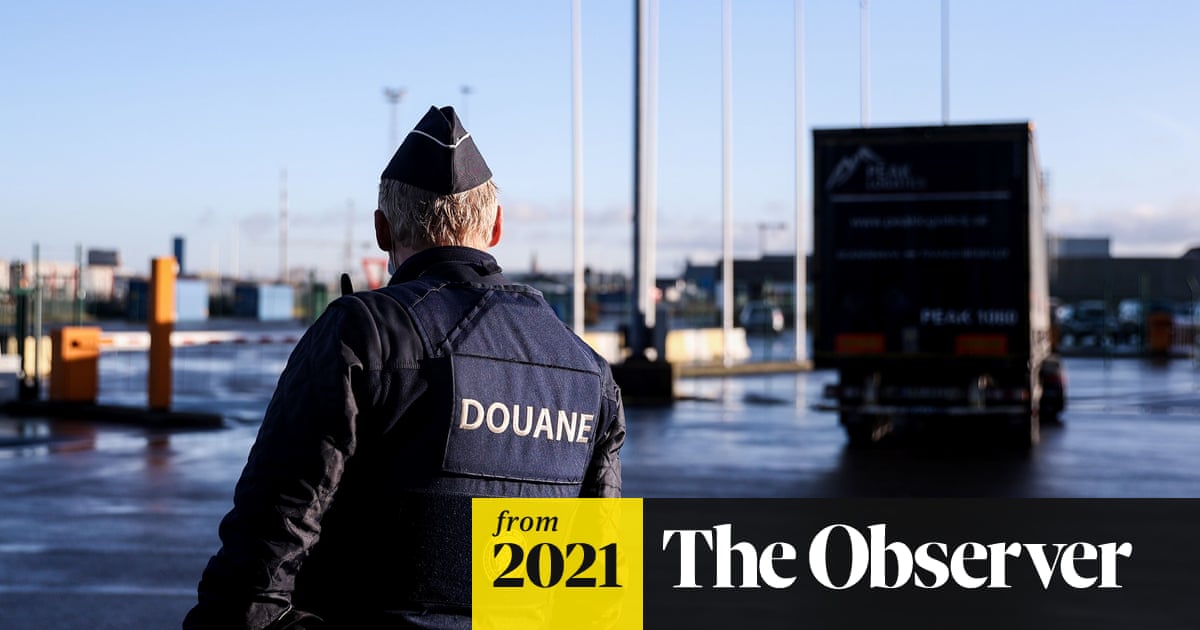- Reaction score
- 1,962
- Points
- 1,140
Who said anything about not trading?The UK is still to big of a market to ignore and with some good trade deals with other countries outside of the EU they can carve a niche out, that is beneficial to them. While the EU bureaucrats and politicians will want to punish the UK for a bit, the economic hit within the EU by not trading with the UK, will force them to negotiate sooner than later.
The EU will always trade with the UK. What they will do is make it as cumbersome and painful as humanly possible.

Shock Brexit charges are hurting us, say small British businesses
Levies to cover the increase in red tape, VAT and customs declarations are hitting trade to the European Union
This hurts the UK more than it hurts the EU, especially for small businesses.UK fish exporters are unable to sell into European markets because of delays at borders and complain that Boris Johnson and others misled them about Brexit. Leading supermarket chains are warning ministers of food shortages in Northern Ireland because of new border rules and bureaucracy. And small UK companies such as Paul’s, which thrived as part of the EU single market, are saying they may have no future at all in exporting into continental Europe because of the crippling new costs.
Paul is a director of Leon Paul, based in Hendon, north London, which employs 50 people. It is a niche business, which has been in his family since it was set up in 1921. It designs and manufactures equipment for the Olympic sport of sword fencing. But in many ways it is typical of tens of thousands of small companies that sold some of their goods at home and some abroad, and enjoyed seamless access to the border-free EU market for decades. “Previously the business of sending orders direct to customers in Europe was very straightforward,” he says.
“You put something in a box, sent it off with a courier and it got to the customer in a day or two days without any friction, just like sending something within this country.”
Almost a third of Leon Paul’s £7m annual turnover is to customers in EU countries. On average each order to the EU has been worth about £200. But the European export side of the business is now looking increasingly unsustainable.
https://www.theguardian.com/commentisfree/2021/jan/13/brexit-done-dividend-policy
“We did everything we could to prepare for Brexit and are part of the DTI’s export champion community,” says Paul. But since 1 January, his firm – like other UK exporters – has been hit by three new charges. And four days ago the firm discovered another one that his customers in the EU will have to pay on receiving the goods.
“As far as I can see, currently, companies like ours in the UK are not going to be able to do ‘end sales’ to customers in the EU any more. Particularly, small orders for anything under £100 will be completely impossible,” says Paul.
The new export levies, which he says will amount to £160,000 a year for Leon Paul, are first, a “Brexit charge”, as the couriers are calling it, an export fee of £4.50 for every parcel shipped to the EU to cover costs of extra administration and form filling that couriers must carry out.
Second, there is a “deferment account fee” of £5 per parcel that covers couriers’ costs of pre-paying import charges in the destination country; and third, a “disbursement charge” which is set at different levels in each EU country with a minimum of about €14 per parcel, or calculated as a percentage of the value of the goods, whichever is the higher, plus VAT in the destination country. This covers the costs of the tax authority in the recipient country inspecting and processing the parcels.
For the past fortnight Paul has been trying to work out how to absorb the extra costs. But he is struggling to see an easy way.
“Jobs lost will be lost here,” he says. “That is the reality. All of these fees will come straight off profit margins.
“We might save some of the increased costs of doing business in Europe by setting up a warehouse there – and thereby avoid paying charges on every consignment – but we would have to make redundancies in our warehouse here and reduce the size of the business footprint in the UK. We are of course a relatively small business but all exporters will be hit with similar charges.”
And if thats the price the UK is okay with paying for freedom in other areas, that's fine. But one cannot just turn around and say it doesn't make sense for Scotland to separate because of the economic impact.

